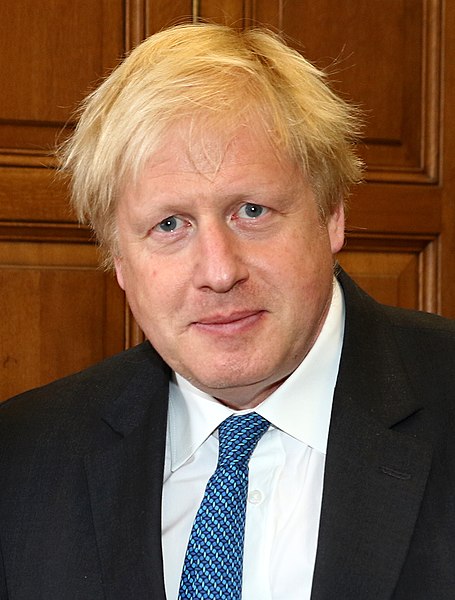10 June 2019 | OPINION
For all that has been made of the sheer volume of wannabe leaders who have spent the last few weeks parading themselves in front of us, and irrespective of the ridiculousness of the narcotics top trumps, policy discussions in this leadership contest have been delightfully sensible and nuanced, especially on Brexit. Setting aside outliers like People’s Voter Sam Gyimah and people’s champion Rory Stewart, the only real dividing line between the candidates on Brexit is whether or not they are willing to countenance No Deal.
Boris Johnson is the unifier that the Conservatives need. The fact that he has won endorsements from Tory ultra-Brexiteers Steve Baker and Priti Patel whilst also enjoying support from “centrism” enthusiast Johnny Mercer (and a host of other moderates) speaks to his unique ability to bring Conservatives together behind a common desire to get Brexit done and a shared vision of a booming post-Brexit Britain.
A logjam in a hung parliament, combined with a rogue Speaker and an electoral populist explosion that is making the polls more volatile than the stock markets, means that pragmatism is an inescapable necessity. Rory Stewart may be the candidate preaching compromise and realism the loudest, but the only person truly putting that into action is Boris Johnson. Johnson’s entirely sensible, down-the-middle approach to Brexit is perfectly balanced to drag Britain through this crisis once and for all by winning back Conservative defectors from all directions.
Johnson intends to stare facts in the face and get to the bottom of Michel Barnier’s stern rhetoric once and for all by implementing a long-awaited now-or-never approach to Brexit: if substantial alterations to the Withdrawal Agreement are not offered in the coming months, we leave without a deal in October. Either way, by the end of the year, the all-consuming issue of Britain’s relationship with Europe will, with a bit of luck, have largely dropped off our national radar. Our political bandwidth will be freed up for the first time in years for exploring other pressing issues like violent crime, school funding and the environment.
On the fundamental point that pursuing a Hallowe’en Brexit is vital for both party and country, the candidates are broadly in agreement. Even Rory Stewart, who has momentarily captured the yearning gazes of the long-abandoned Twitter politicos, acknowledges that we should seek to leave the EU quickly and quietly.
Stewart is viewed admiringly by many as the brave compromise candidate, valiantly speaking the truths no one else dares confront. His ideology is a refusal to have an ideology. By beating everyone else to the punch and entering the leadership contest long before it began, he was able to seize the momentum and present himself as the voice of sensible Conservativism. When it comes to his actual policy pledges, though, his approach is terrifyingly creative.
He may have ruled out a second referendum, but Stewart has no qualms about circumventing democracy by simply ignoring the will of Parliament. His fetish for citizens’ assemblies is questionable, to say the least, and his bizarre assertion that a variation of the Duke of Edinburgh award should be compulsory has raised many eyebrows. This is in addition, of course, to his markedly unpragmatic commitment to taking No Deal off the table. He is not the compromise candidate – Johnson is.
Despite polling poorly with my fellow young Conservative members, Johnson remains the strong frontrunner to take up the leadership mantle next month. He has already achieved more MPs’ endorsements than any of his rivals. Perhaps the most significant of those, especially in terms of the youth vote, is that of Cabinet Secretary and freedom fanatic, Liz Truss.
Swathes of young Tories shed a collective tear when Truss announced that she would not stand in the leadership contest. Unlike Nigel Farage’s attention-hungry brand of media-driven populism, Truss’s politics truly do transcend the left-right dichotomy. She has greatly excited Tory Twitter by mirroring the thinking of neoliberal organisations like the Adam Smith Institute and promoting a youth-centric policy agenda founded on small-state conservatism and individual responsibility.
This worldview enjoys thumping endorsements from young Conservatives. In other words, liberty is the future of the Conservative party. That is why, before she dropped out, Truss was a roaring favourite for leader among us freedom-loving youngsters. The fact that she has now thrown her considerable weight behind Boris Johnson – and is therefore almost certain to take up a senior Cabinet position upon his coronation – sets him in yet stronger stead, not only to begin to heal the Brexit wounds, but to facilitate an optimistic, chin-up approach to building a bright post-Brexit future. Johnson brings together the best bits of Truss and Stewart, with a dash of Mercer and a hint of Baker, making him the candidate who can unite Conservatives of all colours behind a shared vision for a better Britain.
Given his support among both the parliamentary party and the membership, it looks inevitable that Boris Johnson will be Prime Minister by the end of next month. The obligatory caveat, of course, is that many said much the same thing in 2016. It seems safe to say that, short of a similarly extraordinary event to the one that left reporter Sam Coates visibly gobsmacked live on BBC News three years ago, Johnson will sweep to victory and, come Christmas, have executed Brexit and finally taken British politics off pause, setting us back on the road to a bright Conservative future.
















